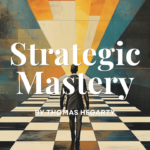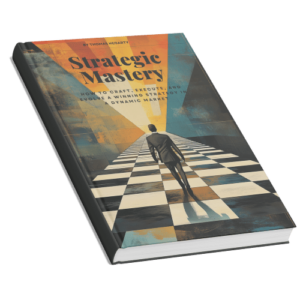
The Chess Game: Strategic Moves in Business
Entrepreneurship is much like a game of chess. Every decision you make is a strategic move aimed at positioning your business for success. Just as in chess, where you anticipate your opponent’s moves, entrepreneurs must foresee market trends and competitor actions to stay ahead.
Strategic Planning
In both chess and business, planning is crucial. A chess player thinks several moves ahead, considering the long-term impact of each decision. Similarly, entrepreneurs must develop comprehensive business plans that outline their goals, strategies, and potential challenges. This foresight allows you to navigate the complexities of the business landscape with confidence and purpose.
Adaptability and Flexibility
However, no plan is foolproof. Surprises are inevitable in both chess and business. An unexpected move by your opponent can disrupt your strategy, just as unforeseen market shifts or economic downturns can challenge your business model. Successful entrepreneurs, like adept chess players, remain flexible and ready to pivot their strategies when necessary. Adaptability ensures that you can respond to changes swiftly and effectively, maintaining your competitive edge.
Risk Management
Chess involves calculated risks—sacrificing a piece to gain a strategic advantage. In business, taking informed risks is essential for growth and innovation. Entrepreneurs must assess potential risks, weigh them against possible rewards, and make decisions that can propel their business forward. Balancing risk and reward is a delicate dance that requires both courage and prudence.
Learning from Every Move
Every game of chess offers valuable lessons, whether you win or lose. Similarly, every business decision provides insights that can inform future strategies. Analyzing your successes and failures helps you refine your approach, improve your decision-making skills, and build a more resilient business. Continuous learning and improvement are key to mastering both the chessboard and the entrepreneurial arena.
Real-World Example: Airbnb
Consider Airbnb, a company that revolutionized the hospitality industry. Initially, the founders struggled to gain traction, facing skepticism and financial challenges. Instead of adhering rigidly to their original plan, they adapted by focusing on unique, affordable lodging options and leveraging the power of the sharing economy. This strategic pivot transformed Airbnb into a global powerhouse, demonstrating the importance of adaptability and strategic thinking in overcoming obstacles and seizing opportunities.
Conclusion
Success in business, like chess, comes from a blend of careful planning, strategic execution, and the ability to adapt when the unexpected happens. Stay focused, think ahead, and be ready to pivot—these are the moves that lead to victory. By approaching entrepreneurship with the mindset of a chess master, you can navigate the complexities of the business world with confidence and achieve your goals.
Master the chess game of entrepreneurship with strategic planning, adaptability, and continuous learning. Let’s achieve success together!
















Recent Comments